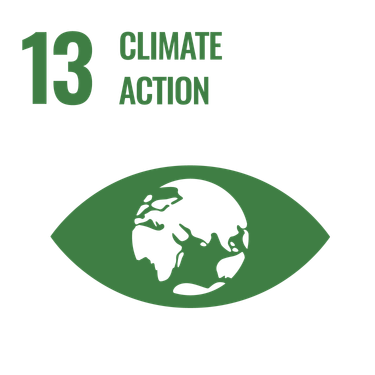
Aligning with the Paris Agreement
Setting science-based targets
Our first critical step towards reaching net-zero CO2 emissions is to focus on our operations (GHG Protocol scope 1 and 2). In parallel, we also review our entire value chain (scope 3) to set relevant targets.
A vital milestone for Duni Group was that our Science-Based Targets (SBTs) were approved in December 2023. Science-based targets ensure that the work towards further reductions of greenhouse gas emissions aligns with the Paris Agreement. It is an essential step towards reaching net zero across the value chain by 2050. The performance will be followed up on and communicated externally annually.

Duni Group’s science-based targets
Near-term targets
- We commit to reducing absolute scope 1 and 2 GHG emissions by 57.1% to 2030 from a 2019 base year.*
- We also commit to reducing absolute scope 3 GHG emissions by 46.2% by 2030.
Long-term target
- We commit to reducing absolute scope 1 and 2 GHG emissions by 90% to 2050 from a 2019 base year.*
- We also commit to reducing absolute scope 3 GHG emissions by 90% by 2050.
*The target boundary includes land-related emissions and removals from bioenergy feedstocks
SDG connected to the initiative
Climate change is a huge challenge, and it is a scientific fact that human activities are the root cause. To help meet the Paris Agreement, everyone must take responsibility to reduce the adverse effects, including companies.
SDG 13: Climate Action
Duni Group aims to change the way we work, the type of energy we use, how we transport and store products and what raw materials we use in our products.

Reporting on our climate performance
Robust and credible reporting is critical to effective climate initiatives. Since 2021, Duni Group has a cloud-based reporting system where colleagues continuously follow up their respective areas of responsibility regarding our climate impact in GHG Protocol scope 1 and 2. The emissions are then calculated based on independent systems and official data to establish our climate impact.
We have also completed our reporting platform for scope 3 emissions as the foundation for setting Science-Based Targets, which were approved in 2023. As a consequence we have stopped all climate compensation related activities and instead allocate these resources to further drive down our climate impact, now when we have a good understanding of where the best results can be achieved.


Initiatives that reduce our climate impact
Most of Duni Group’s internal greenhouse gas emissions come from our production and will be reduced within the GHG Protocol scopes 1 and 2. We have already come a long way. Our European production and converting units now only use fossil-free electricity.
One excellent example of our improvements is the installation of solar panels in Bramsche, Germany, and Bangkok, Thailand. Another good example is our unit in Skåpafors, Sweden, the first paper mill in the world to test replacing fossil LPG with bioLPG.
We worked with carbon offsetting of our portfolio for some time but decided to instead refocus our time and resources towards reducing our impact in absolute terms and creating an information platform for our portfolio’s climate impact. The purpose is to improve customer, consumer, and colleague choices. We will stop carbon offsetting in 2024.
We will also benefit from our work with science-based targets to be able to spread knowledge about our products' climate impact, so that our customers can make better choices. In 2024, we will complete our own CO2 calculator and also have it independently certified.
KPIs for the initiative
Sustainability is the backbone of Duni Group's business strategy. To enable continuous improvements, we must follow up on our performance. We have set key performance indicators (KPIs) to ensure relevant measurements. For the sustainability initiative Going net zero, they are:
- CO2 intensity scope 1 and 2
- The target for 2025: Index 40 on CO2 emissions/production volume, 2019 base year

Learn more about our sustainability initiatives
We strive to be a good employer that promotes equality, inclusion, and diversity. We should be a company that actively participates in society and shares our values and expertise in discussions with various stakeholders.


